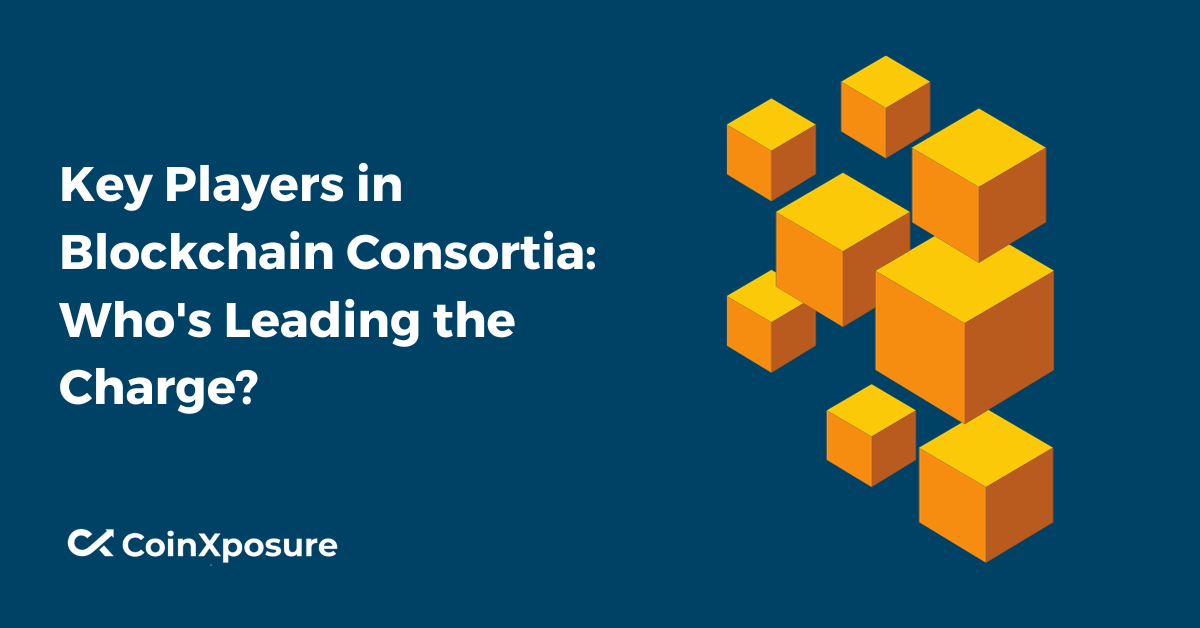
Key Players in Blockchain Consortia – Who’s Leading the Charge?
The blockchain landscape has witnessed a surge in collaborative efforts through consortia, bringing together key industry players to shape the future of decentralized technologies.
This article delves into the leading figures within prominent blockchain consortia, examining their pivotal role in driving innovation, fostering cooperation, and steering the course of blockchain development.
From Hyperledger to R3 Corda and the Enterprise Ethereum Alliance, this examination aims to uncover the key players shaping the trajectory of blockchain consortia and influencing the evolution of distributed ledger technologies globally.
Definition of Blockchain Consortia
A blockchain consortium is a collaborative effort among organizations, typically from various industries, to collectively explore, develop, and implement blockchain-based solutions.
Unlike traditional blockchain networks that may be decentralized and open to the public, consortia involve participants with shared interests working together to address specific challenges, establish standards, and create applications that leverage blockchain technology.
This collaborative approach often facilitates the sharing of resources, knowledge, and expertise among members to advance blockchain adoption and practical applications in a more controlled and industry-specific environment.
Major Blockchain Consortia
Here are the key players in blockchain consortia:
- Hyperledger
- R3 Corda
- Enterprise Ethereum Alliance (EEA)
- B3i (Blockchain Insurance Industry Initiative)
Hyperledger
-
- Overview: An open-source collaborative project hosted by the Linux Foundation, Hyperledger focuses on advancing cross-industry blockchain technologies.
- Key Members: Includes global leaders like IBM, Intel, and Accenture.
- Notable Projects: Fabric, Sawtooth, and Indy are among the noteworthy projects under the Hyperledger umbrella.
R3 Corda
-
- Introduction: R3 Corda is a distributed ledger platform designed for financial services, fostering secure and efficient transactions.
- Prominent Participants: Major financial institutions such as J.P. Morgan, Goldman Sachs, and HSBC are actively involved.
- Focus Areas: Primarily focuses on financial use cases, including trade finance and capital markets.
Enterprise Ethereum Alliance (EEA)
-
- Role in Blockchain: EEA is dedicated to enhancing the adoption of Ethereum in enterprise settings through collaboration and the development of standards.
- Notable Members: Companies like Microsoft, Intel, and JPMorgan Chase are part of this alliance.
- Initiatives: Works on defining standards and frameworks to ensure interoperability and security.
B3i (Blockchain Insurance Industry Initiative)
-
- Formation and Purpose: Originating in the insurance sector, B3i aims to streamline processes and enhance efficiency through blockchain.
- Leading Companies: Involves major insurance players such as Allianz, Swiss Re, and Munich Re.
- Achievements: Focuses on projects addressing common challenges in the insurance industry.
These consortia exemplify collaborative efforts, bringing together key industry players to advance the development and application of blockchain technologies in diverse sectors.
Regional Blockchain Consortia
Here are the key players in regional blockchain consortia:
- ChinaLedger
- Japan Blockchain Association (JBA)
ChinaLedger
-
- Overview: ChinaLedger is a blockchain consortium in China, fostering collaboration and innovation in the Chinese blockchain landscape.
- Participants: Involves major Chinese companies and institutions, contributing to the development of blockchain technologies.
- Impact: Plays a significant role in shaping China’s approach to blockchain and its global influence.
Japan Blockchain Association (JBA)
-
- Introduction to JBA: JBA is a consortium in Japan focused on advancing blockchain technology and its applications.
- Key Players: Involves leading Japanese companies and organizations committed to blockchain development.
- Collaborative Efforts: Engages in joint initiatives to promote the adoption and integration of blockchain in various sectors within Japan.
These regional consortia showcase how different countries actively participate in and contribute to the global blockchain ecosystem, tailoring their efforts to address specific regional needs and challenges.
Consortia Challenges and Future Trends
Consortia Challenges:
- Interoperability Issues:
- Challenge: Ensuring seamless communication and data exchange among diverse blockchain platforms within consortia.
- Implication: Lack of interoperability can hinder the effectiveness of collaborative efforts and limit the potential of cross-consortium projects.
- Governance Concerns:
- Challenge: Establishing effective governance structures to manage decision-making processes and resolve conflicts within consortia.
- Implication: Inadequate governance can lead to power imbalances, slowing down decision-making and impacting the overall progress of initiatives.
- Scalability Challenges:
- Challenge: Scaling blockchain solutions to accommodate a growing number of participants and increasing transaction volumes.
- Implication: Limited scalability can hinder the ability of consortia to handle larger networks or projects, affecting their overall impact.
Future Trends:
- Cross-Consortia Collaborations:
- Trend: Increasing collaboration between blockchain consortia to leverage combined expertise and address complex, cross-industry challenges.
- Impact: Enhanced synergies and accelerated development of comprehensive blockchain solutions with broader applicability.
- Integration with Emerging Technologies:
- Trend: Integration of blockchain with other emerging technologies such as AI, IoT, and edge computing for more robust and versatile solutions.
- Impact: Creating innovative and interconnected ecosystems that leverage the strengths of multiple technologies to address complex business requirements.
- Regulatory Developments Impacting Consortia:
- Trend: Growing regulatory clarity and frameworks that support and guide the activities of blockchain consortia.
- Impact: Increased participant confidence, leading to broader adoption and more significant contributions to industry-specific applications.
As blockchain consortia navigate these challenges and embrace emerging trends, they will likely play a pivotal role in shaping the future of decentralized technologies globally.
Conclusion
Blockchain consortia have emerged as dynamic collaboration hubs, bringing together industry leaders to pioneer advancements in decentralized technologies. Key players, such as Hyperledger, R3 Corda, and the Enterprise Ethereum Alliance, have led the charge in developing robust frameworks and fostering innovation across diverse sectors.
Despite interoperability, governance, and scalability challenges, these consortia have demonstrated resilience and adaptability. Looking ahead, cross-consortia collaborations are poised to amplify impact, creating comprehensive solutions that transcend industry boundaries.
Integrating blockchain with emerging technologies and the evolving regulatory landscape further signifies a maturing ecosystem.
As these consortia continue to navigate challenges and embrace future trends, their contributions will be instrumental in shaping a decentralized future.
The collaborative spirit embodied by these alliances accelerates technological progress and establishes a foundation for secure, transparent, and efficient solutions with far-reaching implications across global industries.
